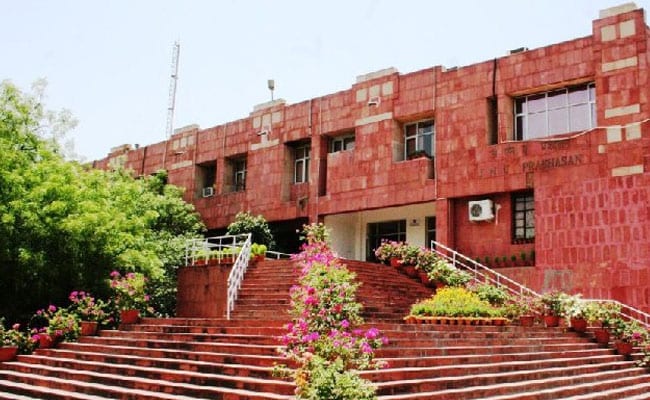
Proposal to introduce short-term courses on Indian culture and yoga had come last year. (File photo)
The proposal to introduce three short-term courses in these subjects had come last year against the backdrop of some right-wing organisations insisting on propagation of culture in educational campuses to promote India’s rich heritage and restore its cultural identity.
Following various communications from the Education Ministry and the University Grants Commission (UGC), Jawaharlal Nehru University had last year circulated a draft of three courses among its various schools and departments for their feedback.
The proposal was rejected by the Academic Council (AC), the university’s statutory decision making body, in November. However, the varsity had in May decided to reconsider it and the departments were asked to rework on the proposed course structure and place the same before the council.
“The reworked draft was placed before the AC last week and the proposal was rejected by majority members,” a council member told Press Trust of India.
According to the proposed draft, the course on Indian culture aimed at expounding the importance of the country’s culture as well as exploring the etymological, social, spiritual, cultural and mythological aspects and establishing Indian values in the world.
“The course will contain the texts, thoughts and traditions of different cultures and include things like religious systems in Indian culture among others. Besides, it will have portions from Vedas and selections from epics and Jatakas and suggestions on readings of Hindu epics like the Ramayana,” the draft read.
“There will be basic study of Indian culture to establish Indian rituals and values in the world and derive ways from these sources to make human life better,” it said.
The document further said Indian culture cannot be understood without the help of “Indian literature, which are generally written by sages”.
It also suggested reading of the Ramayana and the Bhagavad Gita from Gita Press Gorakhpur (a press in Uttar Pradesh that prints hindu religious texts), Acharya Jaidev’s Vedic Sanskriti, Ramdhari Singh Dinkar’s ‘Sanskriti ke Char Adhyaya’, among others.

